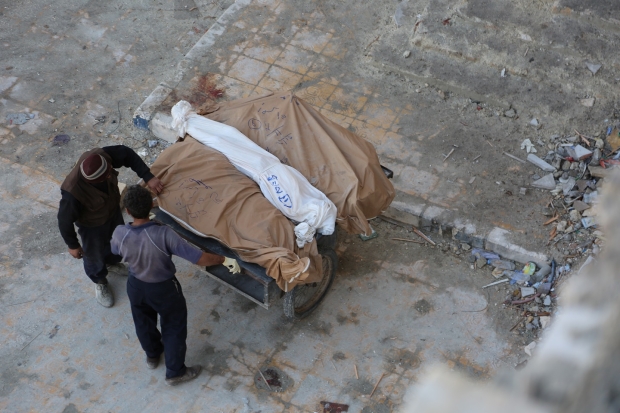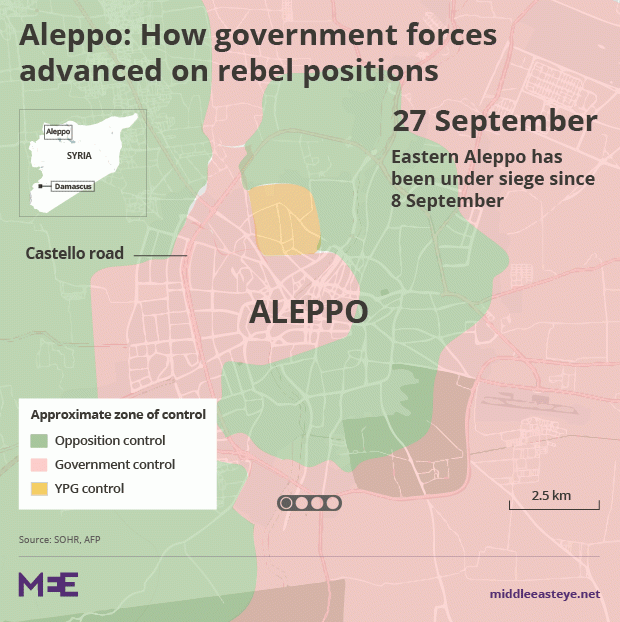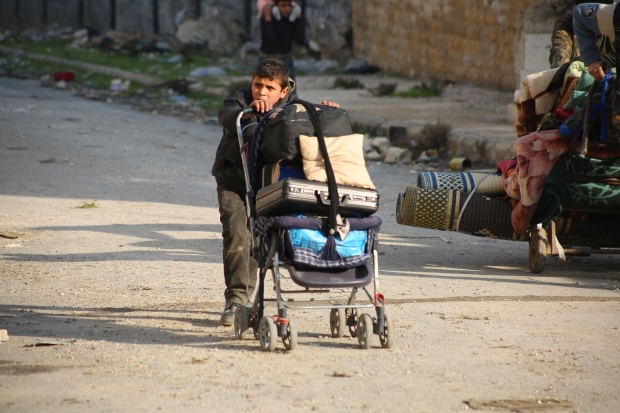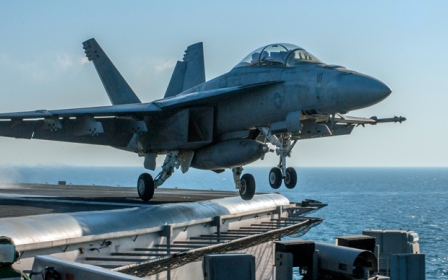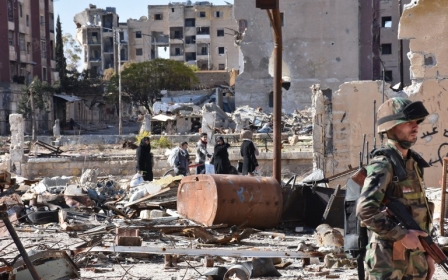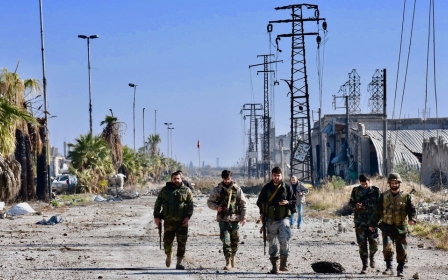Aleppo offensive: Western leaders condemn Russia as rebels call for truce
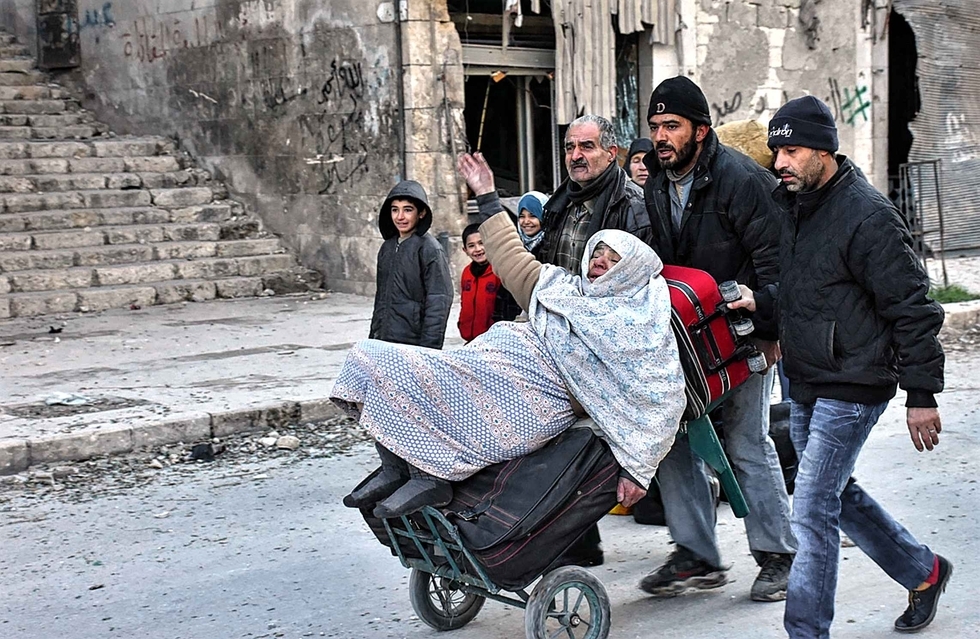
US Secretary of State John Kerry and his Russian counterpart Sergei Lavrov failed to reach an agreement to halt the fighting in Syria's devastated city of Aleppo in talks on Wednesday. Forces loyal to Damascus seized control of the whole of the Old City overnight on Tuesday.
After a meeting lasting about one hour, Kerry said the two talked "about the extraordinarily dire situation in Aleppo and we exchanged some ideas about it and we intend to connect in the morning to see where we are".
Kerry and Lavrov were in the German city of Hamburg for a gathering of the Organization for Security and Cooperation in Europe.
Asked what it would take to bring peace to Aleppo, Kerry replied, "common sense".
The Russian side said earlier that Kerry had made a proposal on Friday that involved a complete rebel withdrawal from eastern Aleppo, but then accused Washington of backtracking and cancelling talks due to be held in Geneva this week.
Kerry denied any change of plans and Washington itself accused Moscow of stalling after Russia and China blocked a UN Security Council resolution on Monday calling for a seven-day ceasefire.
Kerry said he would work for a relaunch of peace talks between the Syrian government and the opposition with the help of Russia.
Asked by a journalist before the Hamburg meeting what it would take to bring peace to Aleppo, the US top diplomat replied, "common sense".
The US, UK and Germany condemned Russia and Syrian actions in east Aleppo on Tuesday.
The criticism from Western leaders came as rebels pushed for a renewed truce to end the bloodshed and Turkey attempted to initiate fresh talks between the Syrian government and the opposition.
In a statement the three countries - along with Canada, Italy and France - denounced Syria and Russia for its role as a "foreign backer" obstructing humanitarian aid and for attacking civilians.
The six called for a ceasefire and noted that 200,000 civilians, among them many children, were now cut off in the besieged eastern part of what was once Syrian's most populous city.
Reports of rebels withdrawing were corroborated on Wednesday morning by the British-based Syrian Observatory for Human Rights, which said that the opposition had pulled out from the districts of Bab al-Hadid and Aqyul.
The government ground advance has been backed by heavy air strikes on areas of the east still under rebel control.
According to the local White Helmet civil defence group, 53 people were killed in various rebel-held districts on Tuesday.
One image shared by activists on social media showed an elderly woman lying prone in a wheelchair after apparently being killed as she crossed the street.
READ MORE: What happens when Aleppo falls
On Wednesday, rebel forces called for an immediate five-day ceasefire and the evacuation of civilians and wounded, but gave no indication they were ready to withdraw as demanded by Damascus and Moscow.
Rebels suffer setbacks
The rebel loss of the Old City comes only hours after they suffered heavy casualties in their former stronghold of eastern Aleppo.
Government troops retook seven districts, including the strategic Shaar neighbourhood. They now control more than three-quarters of former rebel territory in the city's east, the Syrian Observatory for Human Rights said on Tuesday. It called Shaar "the most important neighbourhood in the heart of east Aleppo," and said rebels were reduced to fighting a "war of attrition".
The rapid gains for the government have left opposition fighters scrambling to defend the shrinking enclave they still control.
But despite mounting criticism of the fresh offensive that began on 15 November, world powers have struggled to find a way to halt the fighting.
German Chancellor Angela Merkel said it was a "disgrace" that the international community had been unable to alleviate the suffering in Aleppo.
Turkey to push talks between Russia and Syrian rebels
News of the rebel proposals for a truce came amid reports that Ankara was doing "everything possible" to facilitate negotiations between Moscow and Syrian opposition groups.
'Undoubtedly, the fate of the many ethnic groups represented in Syria is much more important than the fate of one person in particular - Bashar al-Assad' - Turkish PM Yildirim
"We are doing everything possible to bring about contacts between opposition representatives and Russia and have achieved very good success on this score," Prime Minister Binali Yildirim told Russia's Interfax news agency in an interview published on Wednesday. Yildrim met Russian President Vladimir Putin in Moscow on Tuesday.
"If any consensus reached is turned into a signed document then that would be to everyone's benefit. Now is the time when you need to get results," Yildirim added in comments translated into Russian.
A source told AFP in late November that Russian representatives had met with Syrian rebels in Turkey to discuss the possibility of a truce in Aleppo, but failed to reach a deal.
Russia is pushing for a total rebel withdrawal from Aleppo before any ceasefire can come into force, while Ankara wants an immediate halt to the fighting.
READ: US strikes on Syrian troops: Report data contradicts 'mistake' claims
Yildirim softened Ankara's rhetoric on Assad's future after President Recep Tayyip Erdogan sparked Moscow's ire by claiming Turkey intervened in the Syria conflict to topple Assad.
"Undoubtedly, the fate of the many ethnic groups represented in Syria is much more important than the fate of one person in particular - Bashar al-Assad," he said.
Russian army colonel killed
Meanwhile, Russia said Wednesday that an army colonel working as a military adviser in Syria died several days after being wounded by rebel shelling in Aleppo.
"Ruslan Galitsky passed away in hospital as a result of his serious injuries. Russian army medics fought for several days to save his life," the defence ministry said in a statement carried by Russian news agencies.
READ MORE: Aleppo girl Bana Alabed back online
It said he was wounded in the shelling of a residential area in western Aleppo by the "so-called opposition".
Galitsky - who reportedly commanded a tank brigade based in Siberia - is one of the highest-ranking Russian servicemen among about 20 Moscow says have been killed in Syria.
The statement did not specify where or when Galitsky died. On Monday, Russia said two female Russian medics were killed by rebel shelling of an army field hospital in Aleppo.
Meanwhile, Assad said recent army advances in Aleppo will completely change the course of the battle in all of Syria, pro-Damascus television station al-Mayadeen reported on Wednesday.
Assad described Aleppo as the "last hope" of rebels and their backers, "after their failure in the battles of Damascus and Homs", the station said.
New MEE newsletter: Jerusalem Dispatch
Sign up to get the latest insights and analysis on Israel-Palestine, alongside Turkey Unpacked and other MEE newsletters
Middle East Eye delivers independent and unrivalled coverage and analysis of the Middle East, North Africa and beyond. To learn more about republishing this content and the associated fees, please fill out this form. More about MEE can be found here.


